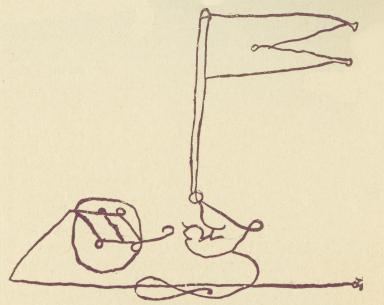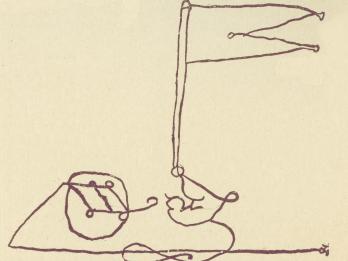Derashot (Sermons)
Solomon Molkho
Solomon Molkho
First Quarter of the 16th Century
And now I will reveal to you why we call the Sabbath before Passover “the Great Sabbath.”
Know that the minister of Egypt is Aries [the ram], and Scorpio, which is with Aries, and its angel is Samael [the angel of death], who is the ministering angel of Esau. As is well known, when a king sends someone to capture a certain man, before he [i.e., the king] decrees judgment upon him, he will hear his arguments; he does not kill him immediately. Thus, when the Holy One wanted to destroy the minister of Egypt, He commanded that he first be captured on the Sabbath that we call “the Great Sabbath.” For on that day, the people of Israel were capturing the lamb below, in order to symbolize that the minister was captured on high and was sitting in judgment before the Holy One, so as to remove his power. The lamb is slaughtered on the eve of Passover in order to hint that at that time the power of the zodiac sign [of Aries] on high is removed. Once the power of the minister was removed, the plague of the death of the firstborn sons in Egypt occurred immediately, on the same night. Since Samael is with Aries, who is the minister of Egypt, the Holy One performed the judgment of death on the very same day that He executed the judgment [on Aries].
This act rendered His power greater, as is said: And now, I pray thee, let the power of my Lord be great (Numbers 14:17), and that is why it is called “the Great Sabbath.” For His power was made great by performing this action on our behalf. This is hinted at by the verse: This is the day on which the Lord acted; we will rejoice and be glad in it (Psalms 118:24): “This is the day on which the Lord acted”—i.e., this is the action of the exodus from Egypt, in which He destroyed the power of Aries; “we will rejoice and be glad in it”—for on the very same day, judgment will be wrought upon Samael.
Concerning this it is said: Come near, O nations, to hear; and hearken, O people, etc. For the Lord has indignation against all the nations (Isaiah 34:1–2). What is this “indignation”? It is the end of all anger. For there is a fury that passes. By way of allegory: when a king is outraged by a certain country, he chastises it in some manner, and then his anger dissipates. However, this fury will be the end and destruction of the nations. For this reason, the verse uses the word indignation, which in Hebrew is derived from the word end.1
And all the host of heaven shall rot away, and the heavens shall be rolled together like a scroll (Isaiah 34:4). This comes to teach us how Samael will be captured. The phrase “and the heavens shall be rolled together like a scroll” means that once Samael will be captured, he will sit in judgment before the Holy One for all the evil he has done to His children, just as the minister of Egypt stood trial, and he will be charged for all of the troubles that he caused Israel.
It is stated in Sefer hekhalot [Book of (the Heavenly) Palaces, also known as 3 Enoch]:
R. Ishmael said: It was on a Thursday when the harsh report from the great city of Rome came, saying that three noblemen of Israel had been captured—R. Simeon ben Gamliel, R. Judah ben Bava, and R. Eleazar ben Dama—and their ransom was eight thousand scholars. When R. Neḥunia ben ha-Kana saw this decree, he stood and lowered me into the chariot. I interceded with the Prince of the Presence [Metatron], who told me that ten men had been inscribed by the court on high [for judgment], and they were handed over to Samael, the minister of Rome, with the instruction: go and annihilate from the mighty ones of Israel every good piece, the thigh, and the shoulder (Ezekiel 24:4), in order to fulfill the decree: He who steals a man and sells him, if he be found in his hand, he shall surely be put to death (Exodus 21:16). It has been reserved for him to avenge himself for this matter, until the day arrives when the Lord will punish the host of the high ones one high (Isaiah 24:21), when he will be slaughtered and cast out, he and all of the ministers of his kingdom on high, like the young goats and lambs of Yom Kippur.
When the Holy One fights against Samael, He shall remove his power, as the verse proceeds to state: And all their host shall fall down, as the leaf falls off from the vine (Isaiah 34:4), etc. Once the Holy One removes the minister’s power, evil will fall upon Edom, as it is said: For my sword is sated in heaven; behold, it shall come down upon Edom (Isaiah 34:5), etc. And the verse which refers to A great slaughter in the land of Edom (Isaiah 34:6) is alluding to the “great Sabbath,” as we have stated. And the phrase: Wild oxen shall come down with them, and bullocks with bulls (Isaiah 34:7) is hinting at the Messiah, son of Joseph,2 about whom it is stated: The firstling of his herd, grandeur is his, and his horns are like the horns of a wild ox (Deuteronomy 33:17).
Notes
[Ketzef = indignation, ketz = end.—Trans.]
[Who will come before the arrival of the true redeemer, Messiah, son of David (see b. Sukkah 52a–b).—Trans.]
Credits
Published in: The Posen Library of Jewish Culture and Civilization, vol. 5.





